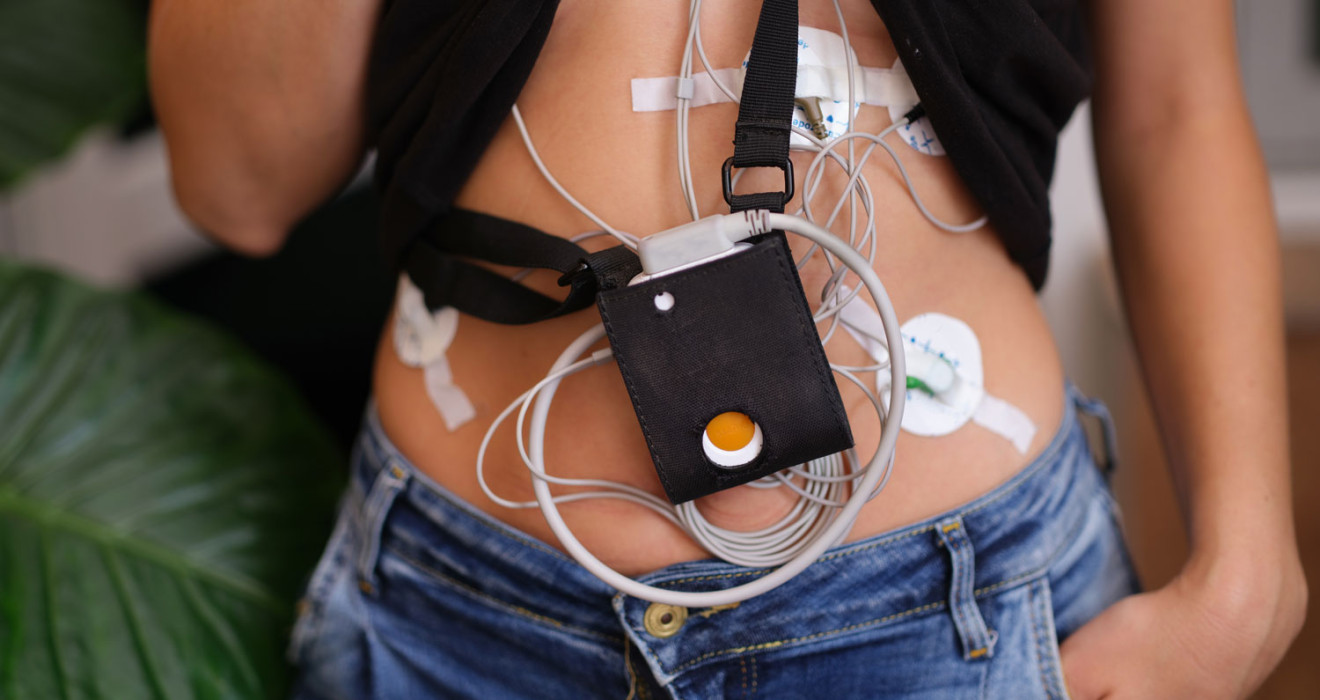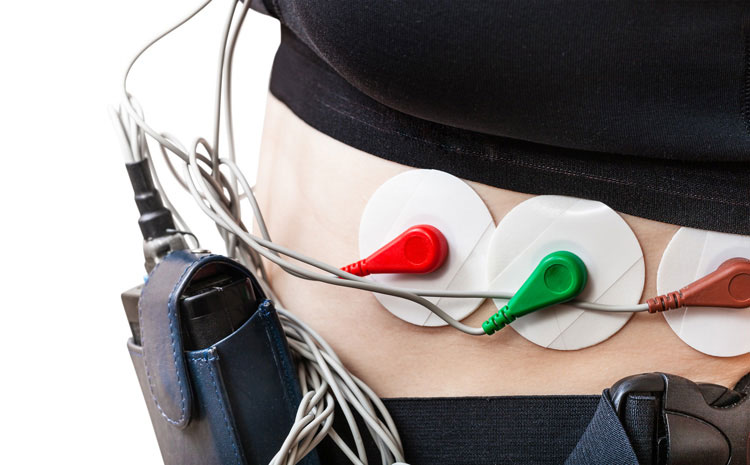
Rhythm Holter (Holter ECG)
Rhythm Holter is a portable ECG device that records the heart rhythm for 24 hours. It is used in patients with symptoms of heart rhythm disturbances, such as irregular heartbeats, heart palpitations or abnormal rhythms. Because the Holter ECG records patients' heart rhythm as they go about their normal daily activities, it enables them to be diagnosed even when symptoms of a heart rhythm disorder occur sporadically or only in certain situations.
What is a Rhythm Holter?
Holter ECG is an electrocardiography (ECG) test that records the heart rhythm over time. This test is used to detect irregularities or abnormalities in the heart rhythm.
Why is Holter ECG performed?
The test allows the heart rhythm to be recorded over a while and is an essential tool in diagnosing and treating heart conditions. This test is performed for the following reasons:
- Heart rate too high or too low
- Heart diseases
- Irregular heartbeat
- Medication that affects the heartbeat
- Symptoms such as fainting, chest pain, shortness of breath
How to Use a Rhythm Holter?
The rhythm holter device is attached as follows:
- Cleaning the area: The chest area needs to be clean and dry so that the electrodes can adhere well to your skin.
- Placement of the electrodes: The device's electrodes are small adhesive pads that will be placed on your chest.
- Attaching the device: After the electrodes have been placed, the device is placed on the chest.
Inserting the device is quick and painless. Once the device is fitted, you can perform normal activities during the recording period. You should check the device regularly during the test to ensure it is working and the electrodes are correctly placed.
In Which Diseases Is Holter ECG Used?
The rhythm holter test can be used in the following diseases:
- Arrhythmia
- Heart failure
- Coronary artery disease
- Myocardial infarction
- Hypertension
What Should be Considered in Rhythm Holter Examination?
The test must be carried out with care to obtain accurate results. The points to be considered in its examination are as follows:
- Installing the device correctly
- Correct placement of electrodes
- Protection of the device from water, moisture and magnetic fields
- Recording of activities
- Recording of symptoms (e.g. chest pain, shortness of breath)
- Continuation of normal activities during the test
How is a Review Assessment Performed?
To evaluate the results of a Holter ECG examination, the length and quality of the recorded data should first be considered. A qualified cardiologist should then interpret the results of a rhythm Holter examination.
A Holter ECG examination results can show a normal or abnormal heart rhythm. Abnormal heart rhythm can be defined in many ways, and treatment options can vary accordingly.
The evaluation of the examination results varies according to the patient's condition and symptoms. Therefore, a cardiologist should be consulted to interpret the results and decide treatment options.
Frequently Asked Questions
-
Holter ECG is a type of ECG test that allows the heart rhythm to be recorded for 24 to 48 hours or longer. This test is used to detect irregularities or abnormalities in the heart rhythm.
-
It is usually worn for 24 - 48 hours. However, in some cases, longer recordings may be required.
-
You can continue with your normal daily activities while wearing the Holter ECG. However, you should sleep in a way that does not disturb the device. Lying on the wires or electrodes of the device may affect the recording quality.
-
Before the device is inserted, the skin should be cleaned to ensure good adhesion of the electrodes and to maximize recording quality. You may also need to stop or limit the use of certain medications according to your doctor's instructions.
-
When the it is attached, care should be taken to avoid dislodging or damaging the wires or electrodes of the device. Care should be taken not to expose the device to water when showering or bathing. In addition, during physical activities, the recording quality may decrease due to sweating or displacement of the electrodes. Therefore, the position of the electrodes should be checked at regular intervals.


